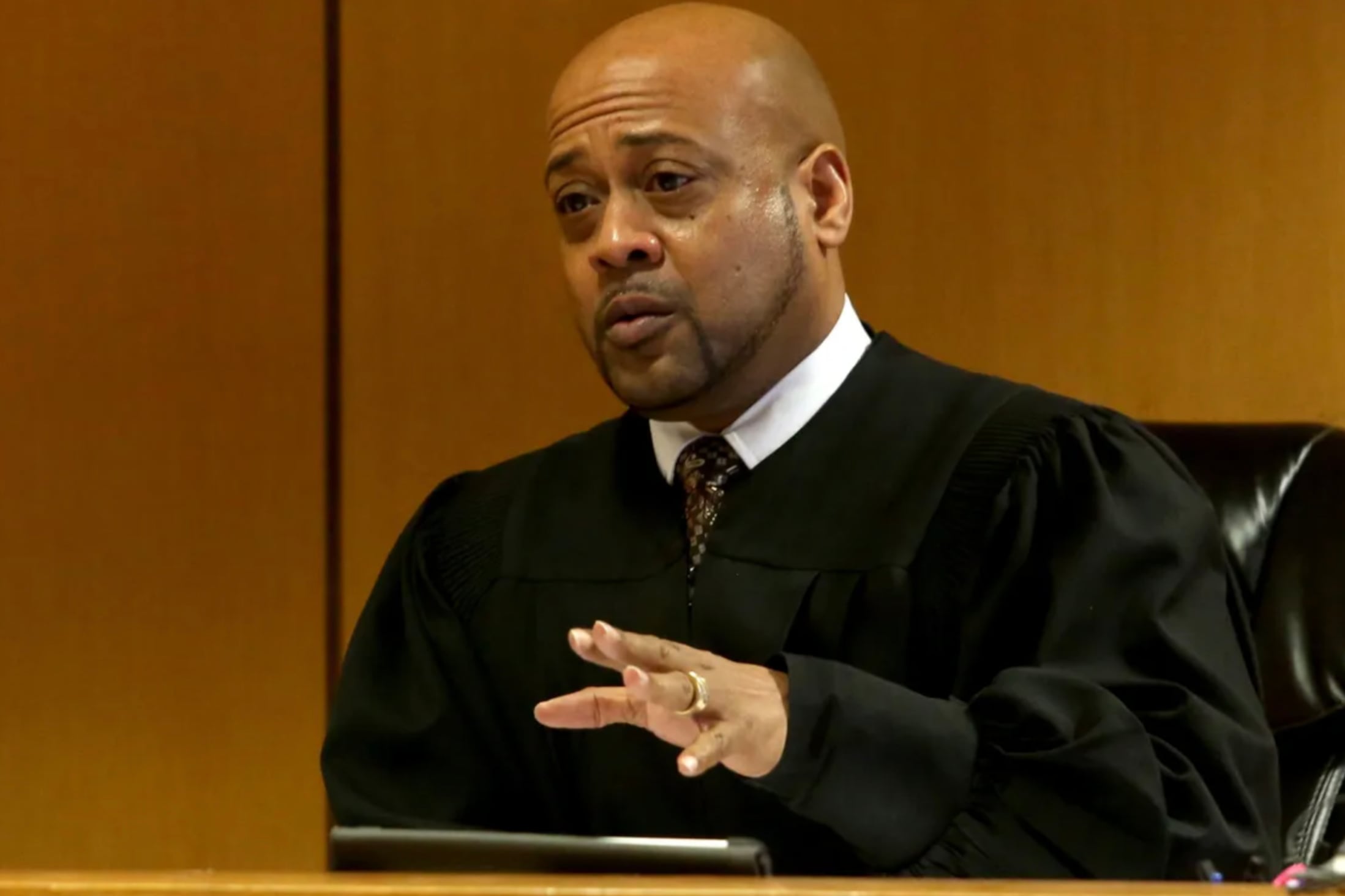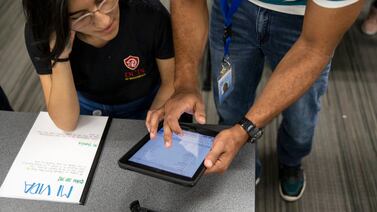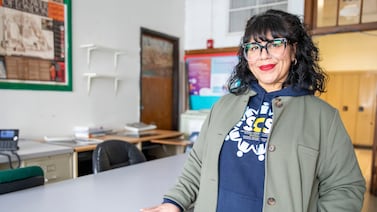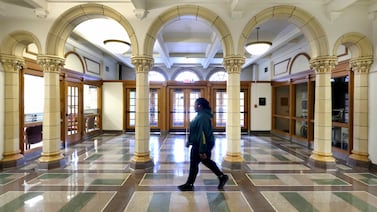Whenever you’re dealing with kids as an adult, it’s important to remember they are years away from being fully developed physically, mentally, or emotionally. Even during moments where children misbehave, it’s important to remember they are imperfect and thus deserve a reasonable amount of grace as they learn how to navigate a world that many of us adults still struggle to thrive in.
It seems that Judge Kenneth King of the 36th District Court could have used those reminders.
What started out as a field trip with the local nonprofit Greening of Detroit turned into a “scared straight” gimmick that reveals some serious lapses in judgment by the court, no pun intended.
Earlier this week, it was reported that the judge placed a teenage Black girl in jail clothes, had her handcuffed, and threatened to put her behind bars. The judge claims he didn’t appreciate the student’s attitude and that she fell asleep twice in his courtroom.
Reports of the incident caused widespread negative reactions from Detroiters on social media.
The Detroit Free Press reports that King has since been temporarily taken off the docket by the court and was ordered to undergo training, according to a statement from 36th District Court Chief Judge William McConico.
“We hope that these steps will help to reassure the public of the 36th District Court’s dedication to serving our community with integrity and fairness,” McConico said in the statement on Thursday.
As a lifelong Detroiter, a Black man, and someone who just spent the past school year teaching in the Detroit Public Schools Community District, I think the court’s punishment doesn’t go far enough for King.
The middle and high school years are vital for a student’s development — not only in the academic sense, but as far as self-esteem and self-image are concerned. I spoke to students on a near-daily basis about different issues they felt but couldn’t quite articulate. Many of my students regularly came to school with poor attitudes, fell asleep in class, got in fights with other students, and even openly disrespected me and other teachers.
Dealing with a disrespectful child is never fun, and it takes an incredible amount of patience to refrain from immediately kicking kids out of the classroom. But it’s that same patience my teachers showed me during days where I had a bad attitude or didn’t get enough sleep that I try to show to students anytime I can. Especially when dealing with young Black students.
When King decided that falling asleep in his courtroom was worthy of putting this young girl in handcuffs and jail clothes, he essentially criminalized being tired, which is something largely out of the teenager’s control.
Latoreya Till, the teen’s mother, told the Free Press that her daughter was likely tired because the family doesn’t have a permanent place to live. When I had students falling asleep in my classroom, housing insecurity was among the many reasons for it. Other reasons included trying to sleep in loud living environments, early school start times, poor sleep habits, and many other things that are completely normal for teenage students in Detroit.
Regardless of the reason, King’s idea of teaching her a lesson ventured into damaging and dehumanizing territory.
Once a young person feels handcuffs clink on their wrists, once they see themselves in a jail outfit, that memory will be there for decades. While it can certainly be annoying to see a young person you are trying to educate falling asleep, it’s not that serious. It’s not a crime that is worth placing the threat of incarceration on the mind of someone who is too young to vote. Especially when they committed no crime.
King told the Free Press during a phone conversation Wednesday afternoon that he believes his actions were justified.
“I wasn’t trying to punish the young lady. What I was trying to do was, I was trying to serve as a deterrence,” King said. “I wanted to instill in this kid that this is not a joke, this is a very serious situation.”
Given this lack of awareness and lack of remorse from the judge, the court’s punishment doesn’t go far enough. It seems that a more appropriate punishment would be one that sees him working with kids who are actually guilty of committing real crimes. His tough love response signals something out of the “tough on crime” era of the 1990s that saw many young Black people face punishments that went far beyond the actual damage they caused. Perhaps he can teach kids who have actually harmed something other than his ego a lesson in rehabilitating themselves rather than seeking to lock up a child for being sleepy.
But what do I know? I’m just the sleepy student-turned-annoyed adult in the room.
Bryce Huffman is a Detroiter, a former teacher with DPSCD and a journalist currently serving as the interim engagement editor at BridgeDetroit. You can reach him at bhuffman@bridgedetroit.com.







